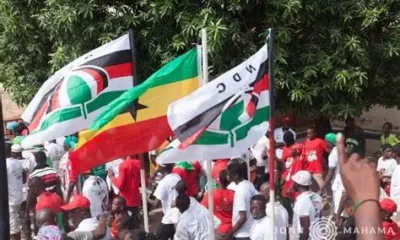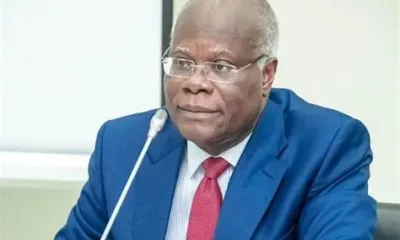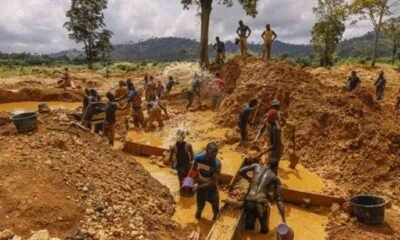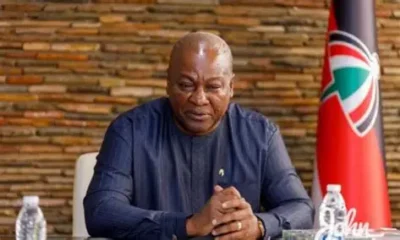Published
8 months agoon
By
Adubianews
President John Dramani Mahama has announced that Ghana’s much-anticipated 24-Hour Economy initiative will officially launch on July 1, 2025, coinciding with Republic Day celebrations.
The announcement was made on May 28, 2025, during a multi-sectoral stakeholder engagement at the Jubilee House. President Mahama emphasized that the 24-Hour Economy is not just a slogan, but a detailed, structured policy designed to improve productivity, create jobs, and unlock Ghana’s economic potential by enabling round-the-clock operations across key sectors.
“This initiative is about maximizing what we already have — infrastructure, labor, and talent — and putting them to use in a coordinated, 24-hour system,” Mahama said.
Key Components of the Policy Include:
•Decentralized Implementation: Every district will form a dedicated 24-Hour Economy Task Force to tailor the program to local industries and strengths.
•Volta Lake Economic Corridor: Plans are underway to develop over two million hectares of arable land around the lake, enhance fisheries, and build agro-industrial zones to serve local and export markets.
•Industrial Infrastructure: The Ghana Infrastructure Investment Fund will oversee the establishment of logistics hubs and industrial parks to support the policy.
•Financial Support for SMEs: Institutions like the Development Bank Ghana and Venture Capital Trust Fund will back small and medium enterprises (SMEs) operating within priority sectors such as agriculture, health, pharmaceuticals, and digital services.
•Youth Development through Aspire24: A national workforce training program aimed at equipping young Ghanaians with the skills needed for shift work and digital economy roles.
•Governance and Oversight: A 24-Hour Economy Secretariat will be established as an independent authority reporting directly to the Presidency to ensure proper coordination and implementation.
President Mahama reiterated that the policy would be a game-changer for the Ghanaian economy, offering a long-term solution to unemployment, improving domestic productivity, and boosting Ghana’s competitiveness regionally and globally.
The July launch is intended to mark a turning point — a symbol of Ghana’s readiness to embrace a new era of economic activity and innovation.


Arthur Kennedy Warns NDC Over Six-Month Resignation Rule for Aspirants


NPP Faces Certain Defeat in 2028 Regardless of Candidate – NDC MP Kyere-Duah


NDC Succession Race Tightens as No Clear Mahama Successor Emerges — Poll


Job Losses Worsening Under NDC — Dr Adomako Kissi


MP David Vondee Urges Support for NDC as New Development Projects Begin in Twifo-Atti-Morkwa


Former MP, K.T. Hammond Says NDC Cannot Fix Economy in Just 10 Months


NPP Undermining Government’s Fight Against Galamsey – NDC Volta Youth Organiser


NDC Criticized For $10 Billion Borrowing In Nine Months


NDC’s Mustapha Gbande Criticizes NPP Candidate After Akwatia By-Election Loss

























